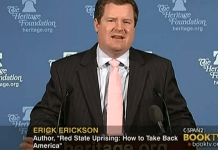As Europeans prepare for four days of voting across 27 countries to elect a new European Parliament, a significant portion of young people will be heading to the polls for the first time. In certain countries like Belgium, Germany, Austria, Greece, and Malta, the voting age has been lowered to 16, granting minors the opportunity to participate in these elections.
For many young voters, these European elections carry immense importance, particularly concerning issues of security and stability. The rise of Euroscepticism and concerns about the future, exacerbated by events like the Covid pandemic and escalating tensions in Europe, have reshaped the political landscape.
In contrast to the “Green wave” witnessed in the 2019 elections, where young voters overwhelmingly supported green parties advocating for robust climate policies, current polls suggest a shift towards right-wing and far-right parties. Many young voters, disillusioned with traditional parties and seeking change, are gravitating towards movements challenging the status quo.
Issues such as immigration, transgender rights, and abortion are prominent in the discourse, driving young voters towards parties on the far right. The appeal lies in these parties’ anti-establishment stance and their perceived responsiveness to the concerns of young people.
As young voters voice their frustrations and seek alternatives, the political dynamics in Europe are undergoing a transformation. The rise of right-wing parties among young voters signals a departure from previous electoral trends and underscores the need for traditional parties to adapt to changing demographics and priorities.























